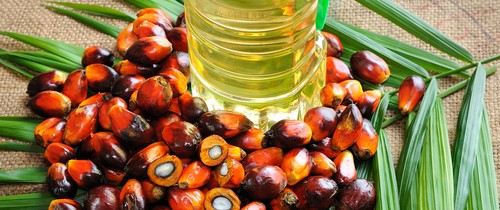Consumer Pressure Changing CPG Firms Policies on Palm Oil
Palm oil touches our lives every time we go to the supermarket. Palm oil and its derivatives are used in more than half of all packaged products Americans consume contain palm oil including soap, lipsticks, shampoos, cookies, potato chips and ice cream.
It’s also a bio-fuel and one of the fastest-growing crops in the world. Rising global demand has lead to widespread destruction of tropical forests and endangered wildlife habitat in Africa, Latin America, Malaysia and Indonesia.
Last week, Procter & Gamble (P&G), the world’s largest consumer goods company, announced what it calls its “commitment to no deforestation in its palm oil supply chain,” in an effort to advance long-term sustainability issues. In the wake of consumer pressure and severe criticism by a Greenpeace report earlier this year, the multinational company said that by the end of 2015 it would ensure that the palm oil and palm kernel oil it sources is traceable to the supplier mills.
P&G no deforestation policy promises to remove forest destruction from its palm oil supply chain by ensuring all their suppliers guarantee no conversion of peat lands, respect the rights of local communities and protect high carbon and high conservation value areas.
“P&G’s commitment to no deforestation in its palm supply chain is unequivocal. Our aim is to develop effective long-term solutions to the complicated issue of palm oil sustainability. We are committed to driving positive change throughout the entire supply chain, not just for us, but for the industry and for the small farmers who depend on this crop,” said Len Sauers, P&G Vice President of Global Sustainability.
Already, 100% of P&G’s purchased palm oil is certified by Roundtable for Sustainable Palm Oil (RSPO) standards. P&G is a member of the RSPO, and supports the criteria it has established for sustainable palm oil. The new goals go beyond RSPO certification, with the objective of developing reliable, effective and lasting sustainable practices by all palm suppliers.
P&G is a member of the international Roundtable for Sustainable Palm Oil (RSPO), and says the palm oil it currently purchases is all RSPO-certified. But its new commitment includes the goals of being able to trace all its palm oil supplies by the end of 2015, while “ensuring no deforestation in the palm supply chain to plantations” by 2020.
Procter & Gamble joins a group of other firms – including Nestle, L’Oreal, Colgate-Palmolive, Unilever, Mars, Kellogg, Safeway, Delhaize, Ferrero, GAR and Wilmar – in committing to no deforestation. Johnson & Johnson has also publicly committed to source 100% of its ingredients derived from palm oil from certified sustainable sources by 2015.





